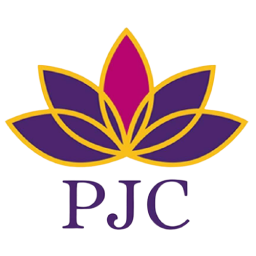
Who We Are
Pruksa Visa Consulting Office (PJC) is a dedicated team of immigration law professionals with a combined 17 years of experience.
Our main office is strategically located in Akihabara, the heart of Japan's Otaku culture, with additional offices in Thailand. We serve clients from around the globe who seek to settle in Japan or Thailand.

Our Services
How We Process Your Visa Application
01
Inquiry
Fill out the contact form and please make sure to include as much detail as possible. Our team will do our best to get back to your inquiry within 1-3 business days.
02
Meeting
Once we have processed your case our team will reach out with the method for the first consultation. There 2 methods, first is to book a meeting online or to arrange a meeting at our physical office in Akihabara.
03
Payment
We will send you an estimate and an invoice. If you are satisfied with the fee, we will ask you to transfer half of the amount as an application fee.
※No refunds will be made after the document preparation has started. Please understand this beforehand.
04
Preparation
Once we confirm your payment, we will send you a list of documents required for your application. Please gather the necessary documents. In parallel, we will prepare a set of visa application documents.
05
Submission
Once all the documents are in order, we check them and if there are no problems, we apply to the Immigration Bureau. Alternatively, you may apply by yourself.
We Help To Achieve Your Goal
Takahiro Yasuda
CEO & Japan Lawyer

Background
-
ITJ Legal Firm
-
Sato Legal Office
-
Ueno Port Legal Firm
-
Chairman of I Wish Language School in Thailand
Sutthida Wutthi
Thai Lawyer

Background
-
Faculty of Law, Chulalongkorn University
-
Extraordinary Member of the Thai Bar Association
-
Licensed Thai Lawyer
Rie O
Thai Lawyer

Background
-
Experience in HR support for foreign employees at a digital marketing agency.
-
Licensed administrative scrivener with expertise in residency issues for foreign nationals.

Get in Touch with PJC
and Setup a Consultation Today
Our Clients
FAQs
A visa consultation is a specialized service offered by professionals, such as immigration consultants or law firms, to help individuals and organizations with their visa needs in a foreign country.
If you are not a citizen or resident of Japan you will need a visa to enter and stay in Japan. There are numerous visas available depending on your purpose. It can be cumbersome and difficult if you do not understand Japan’s immigration policies and procedures. Getting in touch with a visa consultant will increase your chances of approval during the application process.
Our team specializes in the following visas
-
Investor/Business Manager Visa
-
Working Visa
-
High Skilled Professional Visa
-
Spouse Visa
-
Student Visa
-
Permanent Resident Visa
-
Japan's work visa requirements differ based on the specific visa category. However, here is a general list of the necessary supporting documents for the application:
Certificate of Eligibility
Completed and signed application form
Applicant's resume
Valid passport along with photocopies
Passport-sized photos meeting the specified guidelines
Employment contract outlining the job position, salary, and duration of employment
Academic and professional certificates
Employer-related documents, such as the company's registration certificate, tax withholding report, and recent financial statements
Applicants may also be required to submit additional documents as requested by the Japanese embassy or consulate where they apply. Consult with PJC and let us help you and your company get all the documents and procedures sorted.
Upon graduation, your student visa will no longer be valid, and you'll need to switch to another visa type to remain in Japan. Below are some common scenarios and the corresponding visa options:
If you plan to leave Japan immediately:
You don't need to take any action regarding your visa. Simply return your resident card at the airport when departing.If you plan to sightsee before leaving Japan:
You can apply for a "Short-Term Stay" visa, allowing a 90-day extension.
If you have immediate employment:
You must switch to a work visa. PJC is able to help our clients with the process in the case the hiring company doesn’t provide assistance. The two most common visas for graduates are:-
Engineer/Specialist in Humanities/International Services:
This visa is for activities requiring expertise in natural sciences, social sciences, humanities, or intercultural experience. -
Designated Activities (Japanese University Graduate):
This visa allows a broad range of activities utilizing Japanese proficiency, experience as a foreign student in Japan, and skills gained at a Japanese university. It permits general work not covered by the "Engineer/Specialist in Humanities/International Services" visa.
If you have employment but won't start immediately:
You can switch to a "Designated Activities" visa, allowing you to stay in Japan until your job begins. For example, this option is suitable for September graduates who have a job offer starting the following April.If you are still seeking employment: You must change to a "Designated Activities" visa, which allows you to stay in Japan for 6 months, with an option for a 6-month extension. This is available to international students who have graduated from a Japanese university and are job hunting.
-
A spouse visa remains valid for six months after a divorce is filed. If you plan to stay in Japan beyond this six-month grace period, you must submit a petition to change your status of residence. The decision to approve a change in residence status is at the discretion of the Minister of Justice. You may be eligible to apply for a Long-Term Resident visa if you have lived in Japan for around five years or more, or if you have a minor child who holds Japanese nationality. Consult with PJC to see what options are available in order for you to remain in Japan.
Foreign nationals cannot simply begin establishing a business in Japan without the proper steps. To do so, you must first acquire one of the necessary visas.
The process of obtaining a visa is relatively straightforward. For business-related activities, you can apply for a 4-Month Business Manager Visa, a Start-up Visa, or even an Investor Visa. Consult with PJC to see which type of visa is best suited for your goals.
Securing permanent residency in Japan provides numerous valuable benefits, significantly improving the quality of life and offering long-term stability for foreign residents. Benefits such as not having to renew your visa, fewer employment restrictions, easier access to loans, stability for family life, reduced bureaucracy in day to day life and community integration.
To qualify for permanent residency in Japan, the first option is living in the country continuously for over 10 years, with at least 5 years on a valid work visa.A faster route is for highly skilled professionals, based on a points system. Earning 70 points grants eligibility after three years, while 80 points reduces it to one year. Applicants don't need a specific visa but must meet the required points during the relevant period.
Another option is through marriage to a Japanese citizen or permanent resident, requiring three years of marriage and one year of residency.
Japan’s residency requirements focus on duration of stay, legal, and financial compliance.
Can I naturalize to Japanese?
A foreigner can acquire Japanese citizenship through naturalization. The general requirements are:
-
Continuous residence in Japan for over five years.
-
Being over 20 years old and legally competent according to their country of origin.
-
Maintaining good conduct.
-
Having the financial means or technical skills to support an independent livelihood, either personally or through a spouse or family member.
-
Not holding another nationality or willing to renounce it to gain Japanese citizenship.
For those married to a Japanese citizen, the residency requirement can be reduced to more than three years, or just one year if they’ve been married for over three years.
-
Japan Visa Processing Time Overview Japan has a strict visa policy, requiring visitors to apply well in advance of their trip. The processing time for a visa depends on the type of visa and the season. On average, it takes 7 to 10 business days to process a visa application.
Factors Influencing Processing Time Several factors can impact how long it takes to process a Japanese visa, including:
-
The visa type.
-
Your country of origin.
-
Time of year (peak tourist seasons may cause delays).
-
Whether you're applying for a single or multiple-entry visa.
-
If all necessary documents are submitted.
-
If an interview is required.
Types of Japan Visas Japan offers different visas for various purposes, each with its own requirements and processing times.
-
Tourist Visas: For leisure trips, these typically take 7-10 days.
-
Business Visas: For business-related travel, processing takes around 10-15 business days.
-
Student Visas: For study purposes, processing takes 2-4 weeks, though it can be expedited in some cases to 5 business days.
-
Work Visas: The longest to process, taking 4-12 weeks, due to extensive documentation requirements such as proof of employment and financial support.
-
You must apply to extend your stay in Japan before your current visa expires. You can submit a Japan Visa Extension application as early as three months (90 days) before your visa's expiration date.
You can apply for a Japan Visa Extension at the Immigration Office responsible for the region where you live and work or study. A list of Japan's Immigration Offices is available on the Immigration Services Agency of Japan's website. Consult with PJC to help you with the process with no trips to immigration required.
Bringing a family member to Japan will require a Dependent Visa. Not everyone will be eligible, only the following members are eligible:
-
Legally married spouse
-
Legal child including legitimate child, recognized illegitimate child, and adopted child
-
In some cases a parent who is over 65 and can't support oneself in his or her home country
You can't bring a parent not corresponding to the above case or other relative, a fiance, or your spouse's children from previous marriages to Japan before adoption. Consult with PJC to see how we can help you get your family members to Japan.
-
If you accidentally overstay by forgetting to renew your visa, you may still apply for renewal if the overstay is short and you meet the renewal conditions (e.g., continuous employment or marriage).
For intentional overstays:
-
Deportation: Immigration may investigate, question people, and search places. You could be detained and have three chances to defend yourself. If deported, you face a 5-year ban from Japan, though special permission to stay may be granted in some cases.
-
Departure Order: Voluntarily reporting your overstay can lead to a Departure Order instead of detention, with a 1-year reentry ban. Conditions include no other offenses, no crimes in Japan, and leaving within 15 days.
It's crucial to avoid overstay penalties by tracking your visa expiration. If you accidentally overstay, handle the situation carefully to remain in Japan, and consider seeking advice.
Note: We do not handle cases of intentional overstays.
-
If your application for a Certificate of Eligibility, visa status change, or renewal is denied by Immigration, it's crucial to understand the reasons. Visiting the office with your application number usually provides a detailed explanation.
You can reapply if you have additional documents to address the issues. There’s no limit to the number of reapplications, but it's important to submit consistent and well-prepared documents.
The needed documents depend on the reasons for the initial rejection, which could be related to your employer's financials or your qualifications. Reapplications often succeed when documents are correctly prepared.







